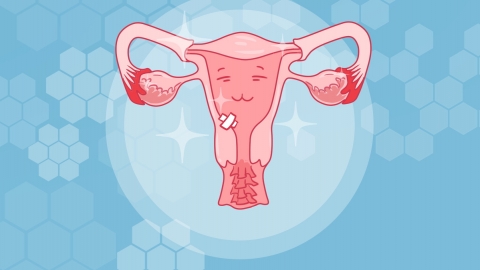What does it mean if the uterus is enlarged?
Generally, an enlarged uterus may be caused by pregnancy, multiple deliveries, adenomyosis, uterine hypertrophy, uterine fibroids, and other reasons. If discomfort symptoms occur, it is recommended to seek timely medical consultation and treatment at a reputable hospital. Detailed explanations are as follows:
1. Pregnancy
After becoming pregnant, a woman's uterus gradually enlarges as the embryo develops to accommodate fetal growth, which is a normal physiological change. Regular prenatal checkups are necessary to closely monitor the development of the fetus and uterus. Maintain a balanced diet with adequate protein, vitamins, and minerals.
2. Multiple Deliveries
Multiple deliveries can cause excessive stretching of uterine muscle fibers, weakening their elasticity, which makes it difficult for the uterus to fully return to its pre-pregnancy size, resulting in an enlarged uterus. Postpartum care focusing on uterine recovery is important, and postnatal rehabilitation exercises such as pelvic floor muscle repair training can be performed under a doctor's guidance.
3. Adenomyosis
Adenomyosis occurs when endometrial glands and stroma invade the uterine muscle layer, causing thickening of the uterine muscle and subsequent uterine enlargement. It is often accompanied by progressively worsening dysmenorrhea and increased menstrual bleeding. Medications such as Danazol Capsules, Triptolide Capsules, and Levonorgestrel Tablets may be used under a doctor's guidance.

4. Uterine Hypertrophy
Uterine hypertrophy is often caused by long-term chronic inflammation, ovarian dysfunction, and other factors, leading to thickening of the uterine muscle layer and an enlarged uterine volume. It may be accompanied by symptoms such as increased vaginal discharge and lower back pain. Patients can take medications such as Cefixime Capsules, Metronidazole Tablets, and Levofloxacin Hydrochloride Capsules as directed by a physician.
5. Uterine Fibroids
Uterine fibroids are benign tumors formed by the proliferation of uterine smooth muscle tissue. As the fibroid grows, it causes overall enlargement of the uterus and may be accompanied by symptoms such as increased menstrual bleeding, prolonged menstruation, and abdominal pain. If the fibroid is small and asymptomatic, regular follow-up visits to the hospital are recommended to monitor its growth. If the fibroid is large or symptoms are significant, medications such as Guizhi Fuling Capsules, Gongliu Xiao Capsules, and Mifepristone Tablets may be used under a doctor's guidance, and surgical treatment may be necessary when indicated.
In daily life, it is important to maintain good living habits and avoid staying up late. Pay attention to personal hygiene, change underwear regularly, and prevent gynecological inflammation. Engage in appropriate physical exercise to enhance physical fitness and improve immunity.




